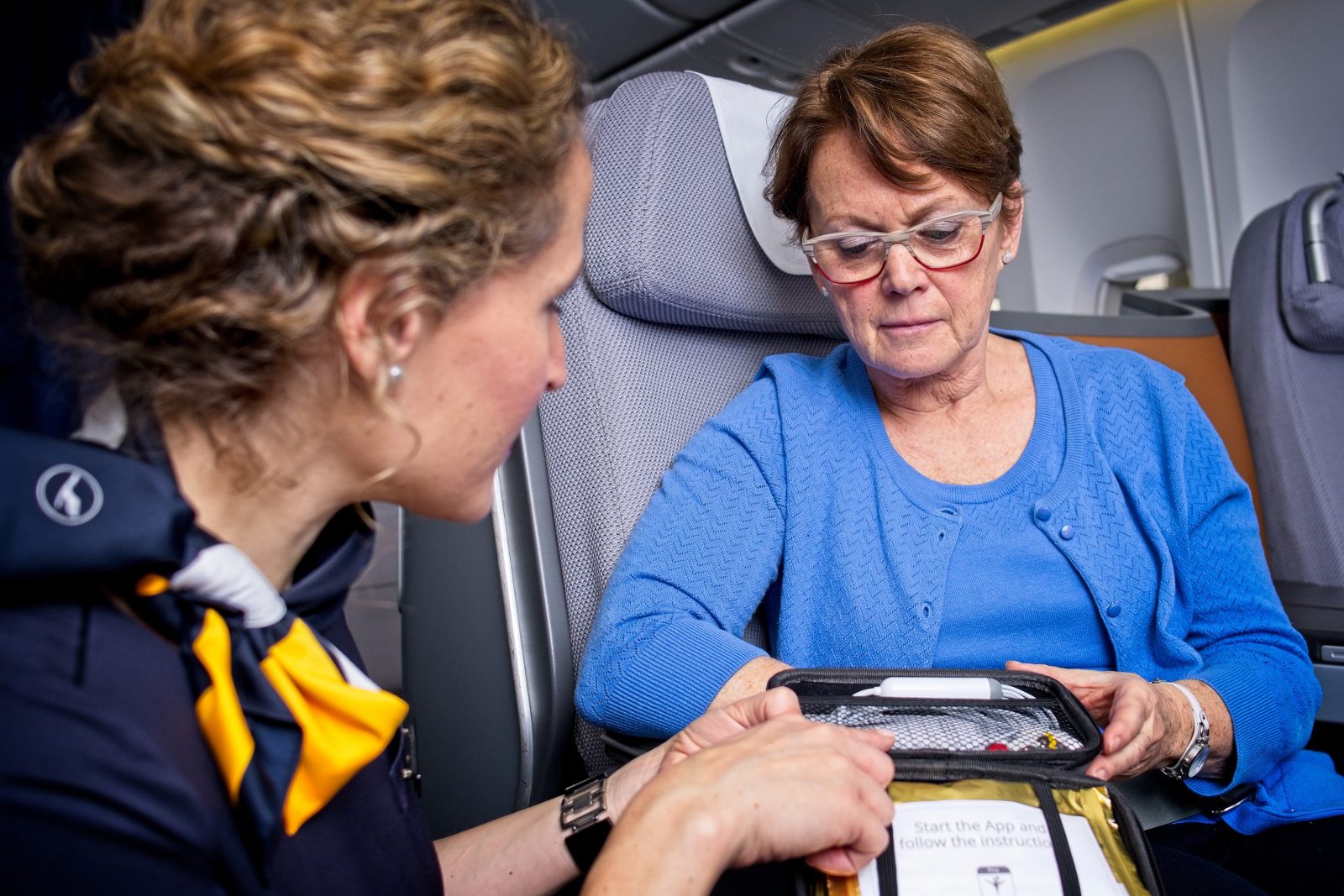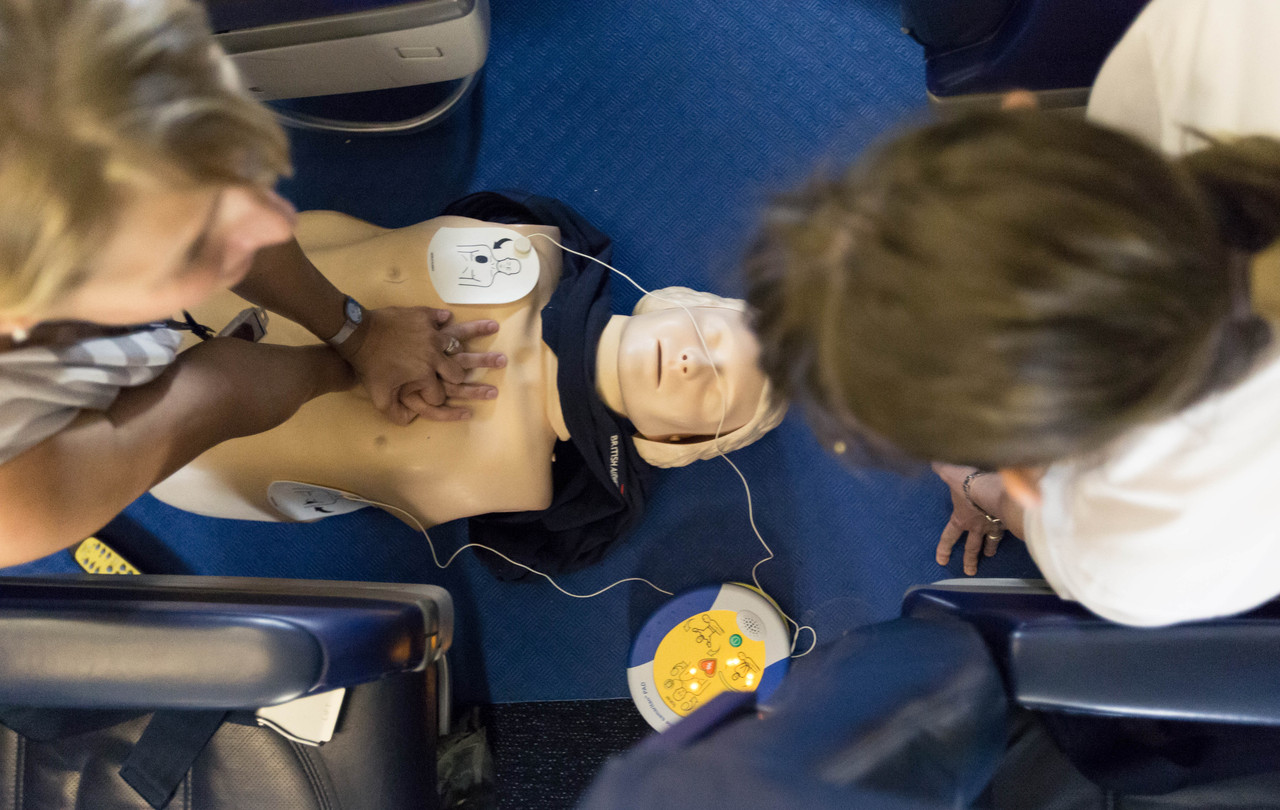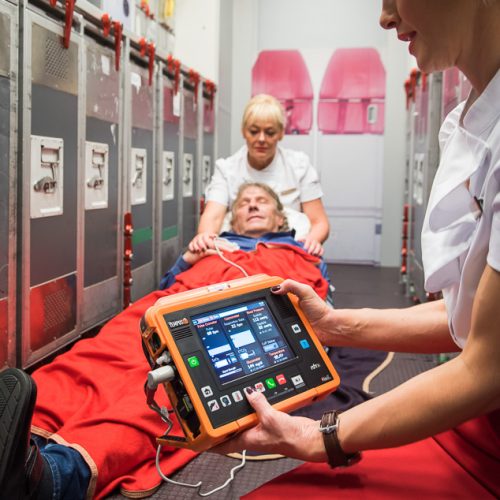
Dealing with medical emergencies at 38,000 feet is always a dreaded moment for any member of cabin crew. Resources are limited, medical expertise might not be readily available and you can’t simply land a fully-loaded plane at the nearest hospital as soon as a passenger takes ill.
And while many airlines take a lot of pride in training their cabin crew in emergency life support procedures, there’s only so far that training can go. That’s why many airlines hire third-party medical aviation providers like International SOS or Medaire to provide direct over the phone support at any time of day or night and anywhere in the world.

On-call doctors and nurses can not only provide expert advice to cabin crew but also decide whether it’s necessary to divert an aircraft or simply administer medication until the flight makes its final destination. These companies even provide medical liability insurance meaning that an airline and cabin crew are legally covered for any decision the doctor or nurse makes on their behalf.
What’s great about services like International SOS is that they’ll also know what medication or equipment different airlines carry. Some carriers load all-sorts of specialist equipment and even medication that only medical professionals can administer. Other airlines have more basic supplies and in those cases, the doctor might be more inclined to order a diversion.
Obviously, a diversion can cost a lot of money – something that airlines want to avoid at all costs. But sometimes a diversion for a medical emergency has to be ordered because the on-call doctor simply doesn’t have enough information to hand.
That’s possibly why more airlines, including Lufthansa, are investing in state of the art telemedicine services. The latest bit of equipment being equipped to all of Lufthansa’s long-haul fleet is a mobile ECG (Electrocardiogram) system called CardioSecur.
“The results of the resting ECG conducted directly onboard the aircraft provide a better basis for deciding whether it is necessary to divert a plane in order to provide medical care on the ground in case of medical emergencies,” explained Dr Sven-Karsten Peters, a cardiologist with the Lufthansa Medical Service.
According to Lufthansa, cardiovascular complaints are the most common cause of in-flight medical emergency on its planes. The small bag of wires connects to the cabin crew mobile device and then sends the information via a WiFi connection to the International SOS operations centre. The on-call doctor can make a more informed decision, although the final decision to divert still rests with the Captain.

A similar system called Tempus IC and manufactured by Phillips is also in use by a number of international airlines including Emirates. Data from a plethora of instruments, including a 12-lead ECG, Bluetooth enabled thermometer, wireless glucometer, built-in blood pressure monitor and nasal cannula sends information direct to doctors on the ground.
Lufthansa says the ECG device will improve its existing medical emergency procedures which include a unique ‘Doctors on Board’ database which is made up of passengers who volunteer to help in the event of an in-flight incident. The database is also used by Lufthansa’s other network airlines – Austrian and SWISS.
In addition, Lufthansa is setting itself apart from low-cost carriers and even monetising onboard medical assistance by offering a Medical Travel Companion – simply put, passengers who need additional medical support during a flight can book a doctor or nurse directly through the airline and receive medical clearance.
According to Lufthansa, it is the only commercial airline company that offers intercontinental intensive care transport through what is known as the Lufthansa Patient Transport Compartment (PTC). A feature that is much cheaper for medical repatriation services than hiring a private jet.
Related
Mateusz Maszczynski honed his skills as an international flight attendant at the most prominent airline in the Middle East and has been flying ever since... most recently for a well known European airline. Matt is passionate about the aviation industry and has become an expert in passenger experience and human-centric stories. Always keeping an ear close to the ground, Matt's industry insights, analysis and news coverage is frequently relied upon by some of the biggest names in journalism.







